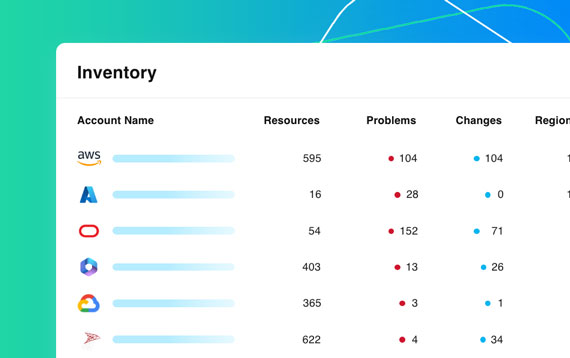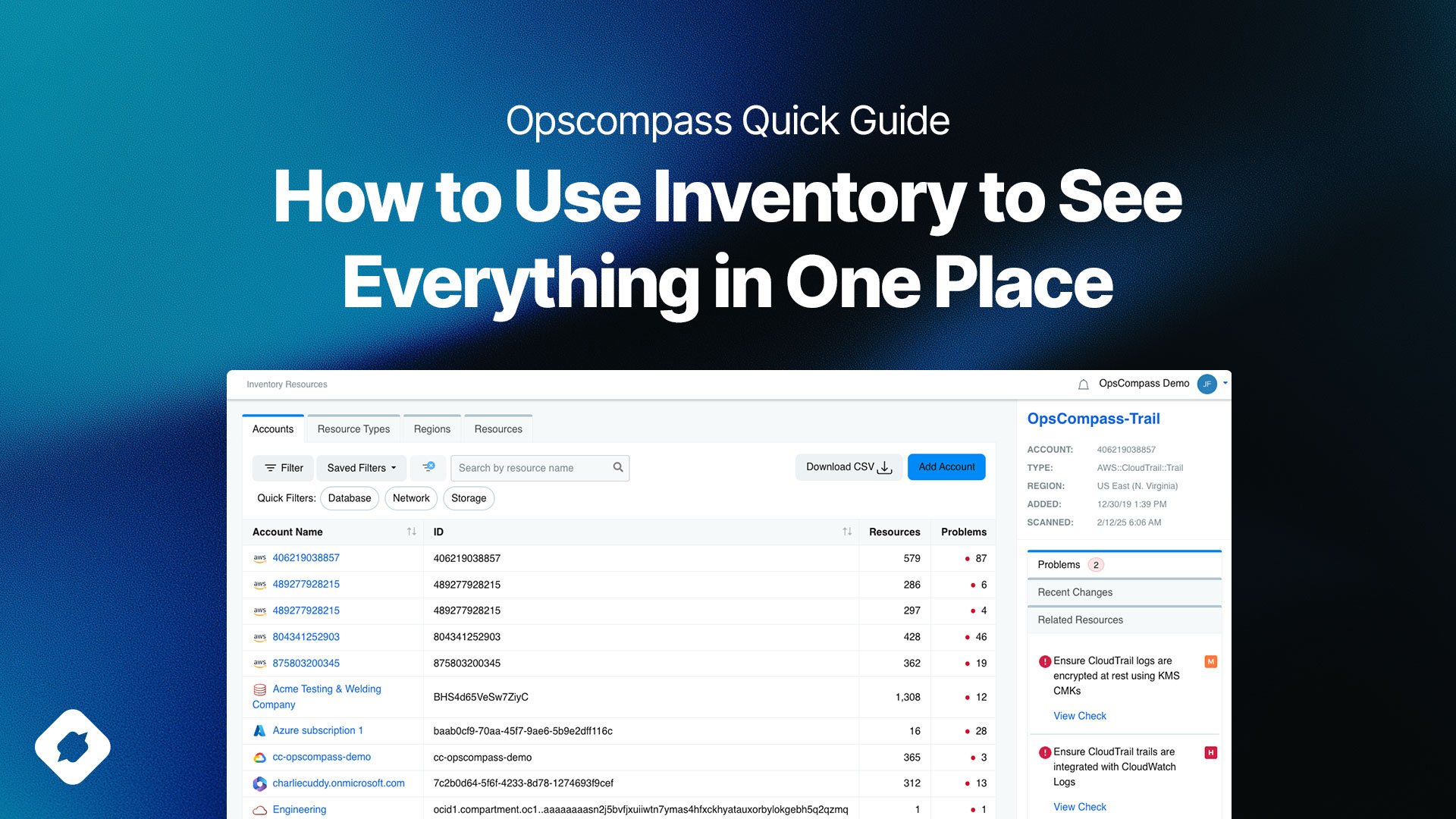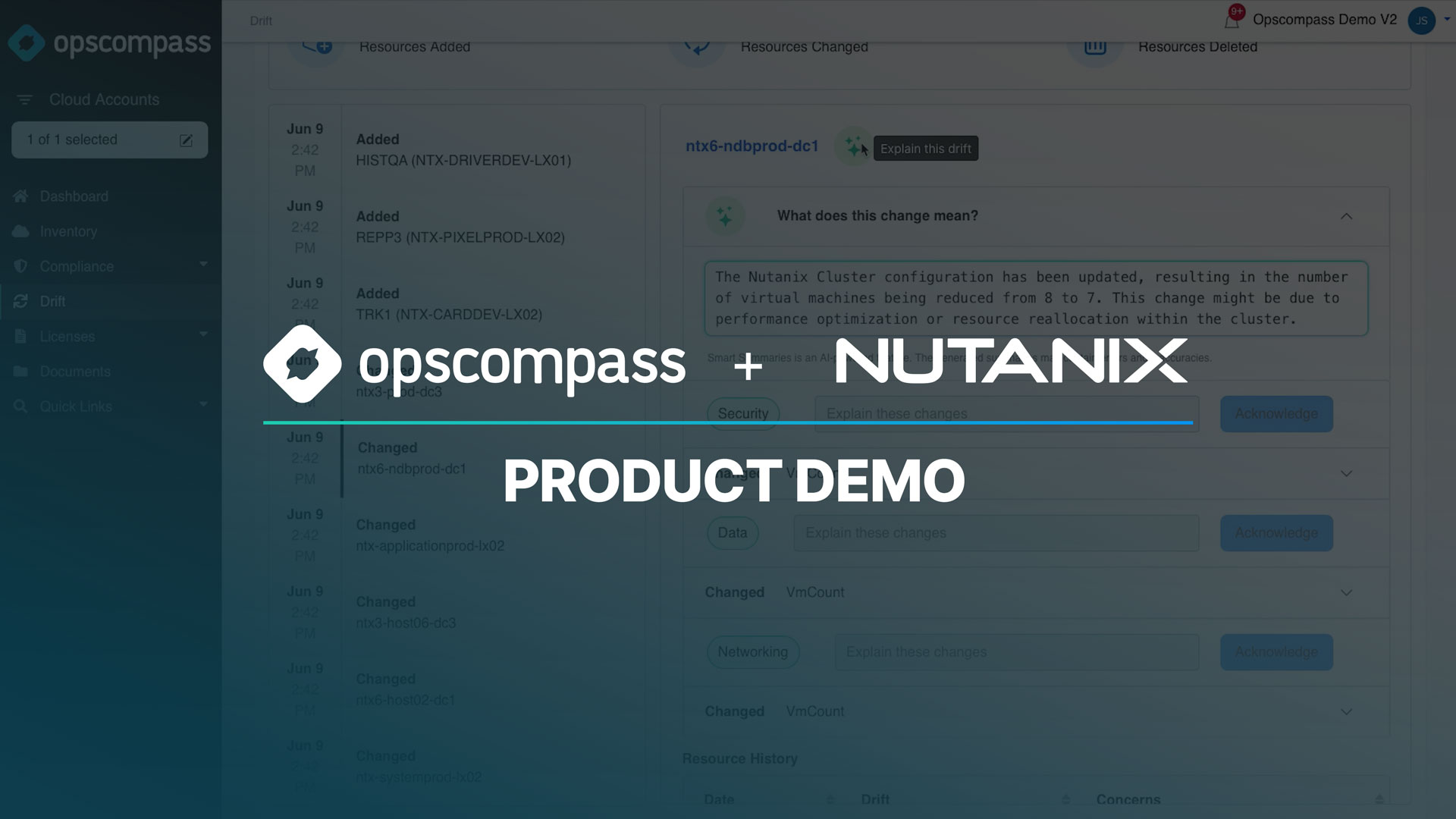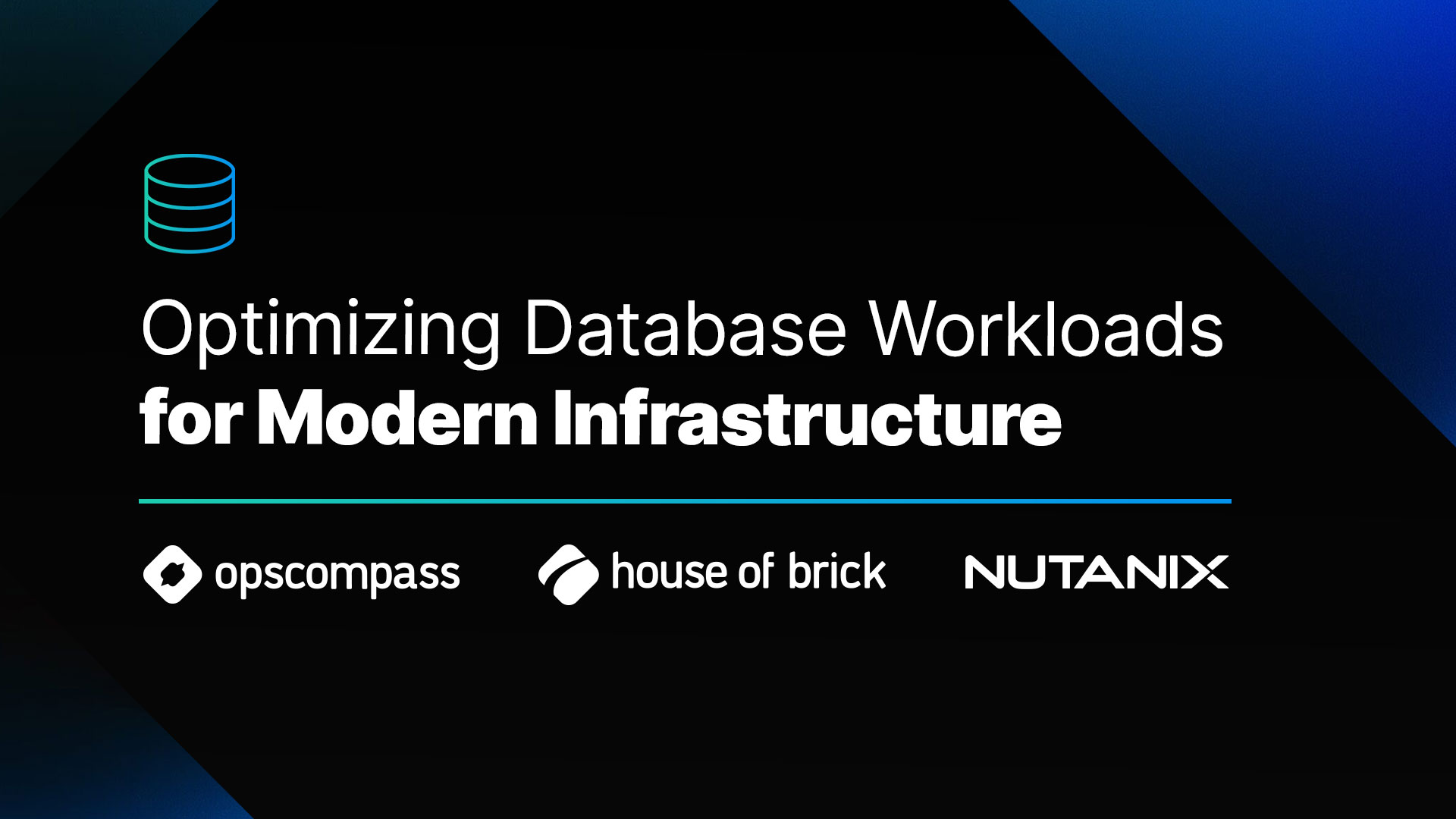Overview: Automated VMware Monitoring and License Support
- Opscompass monitors VMware usage for configuration drift to provide automated notifications of critical conditions for risk elevation and cost overruns.
- House of Brick offers VMware compliance analysis, best-practice deployment architectures, cost optimization, and audit defense services.
- The combination of Opscompass monitoring and House of Brick support services is the perfect solution for reducing VMware compliance risks, validating Broadcom audit readiness, and eliminating unnecessary cost escalation.
- A well-architected VMware environment is also critical for secondary risks associated with Oracle, Microsoft, and other vendor software compliance and optimization.
Key VMware Licensing Changes Under Broadcom (2025)
On December 11, 2023, Broadcom acquired VMware, leading to significant changes in licensing models. These changes include a transition from perpetual licenses to subscription-based models, simplification of product offerings, and adjustments to core licensing requirements. Here are the key licensing changes, and their implications:
Shift to Subscription-Based Licensing
- Broadcom has discontinued perpetual license sales for VMware products, moving exclusively to subscription models. This shift, announced in late 2023 and effective by early 2024, seemingly aimed to modernize revenue frameworks and ensure predictable income.
- Customers must ensure all licenses are subscription-based to remain compliant, as perpetual licenses no longer receive support post-expiration. This is critical for maintaining service continuity and avoiding compliance issues.
Product Portfolio Simplification
- VMware has reduced its offerings from 168 products to four main bundles: VMware Cloud Foundation (VCF), vSphere Foundation (VVF), vSphere Standard (VVS), and vSphere Enterprise Plus (VSEP). Additionally, vSphere Essentials Plus was replaced by vSphere Enterprise Plus in November 2024 due to weak demand.
- Customers must verify their licensing aligns with these current bundles to avoid using obsolete products, which could lead to feature gaps or higher costs when upgrading.
Subscription Renewal Penalties
- Broadcom has introduced a 20% penalty for late renewals, applicable if subscriptions are not renewed by the anniversary date.
- Timely renewals are crucial to avoid additional costs and potential service disruptions, making it essential for customers to monitor renewal dates closely.
Usage Compliance and Audits
- With the subscription model and increased core requirements, Broadcom is expected to conduct more frequent audits. Customers must ensure their actual usage (number of hosts, cores, storage capacity for vSAN, etc.) does not exceed licensed limits to avoid overage charges or penalties.
- Regular monitoring of usage compared to entitlement helps maintain compliance, especially given the potential for significant fines during audits.
Cost Implications and Analysis
- The shift to subscription models, combined with the 72-core minimum, has led to 4x or 5x cost increases for some of our smaller customers. VMware customers should regularly review their cost structure to identify optimization opportunities, especially with the higher entry barriers for smaller deployments.
- Bring-Your-Own-Subscription (BYOS) options, allowing portability across on-premises and approved cloud environments, may help optimize costs. A more proven method of cost optimization, however, is to constantly monitor your resource utilization and look for oversubscribed resources and core-reduction levers.
Understanding these VMware licensing changes is important, but projecting the potential impact to your organizational risk profile is critical. We explore some potential risks below:
Common VMware Licensing Compliance Risks Compliance Risks
The recent VMware licensing changes post-Broadcom acquisition introduce several compliance risks that could lead to increased costs or penalties:
- Incorrect License Types: Using perpetual licenses instead of the required subscription-based licenses, which are no longer supported for new purchases, risks non-compliance and loss of support.
- Misaligned Product Bundles: Not aligning with the simplified product offerings, such as VMware Cloud Foundation (VCF) or vSphere Foundation (VVF), could lead to feature gaps or higher costs due to obsolete licenses.
- Insufficient Core Licensing: Failing to meet the new minimum core requirement of 72 cores per order, effective April 10, 2025, could result in under-licensing and potential penalties during audits.
- Missed Renewal Dates: Not renewing subscriptions on-time leads to a 20% late renewal penalty, increasing operational costs.
- Exceeding Licensed Usage: Using more resources (e.g., hosts, cores) than licensed could incur overage charges or penalties during audits, especially with the expected increase of audit frequency.
- Audit Non-Readiness: Not maintaining proper records or conducting internal audits could lead to higher costs or non-compliance findings during an audit, as VMware’s End User License Agreement (EULA) allows audits up to 2 years post-expiration.
These risks highlight the need for proactive monitoring and expert support to ensure compliance while optimizing costs.
How Opscompass Reduces VMware Licensing Risks
Opscompass offers several capabilities that help minimize these compliance risks for VMware customers, with current and upcoming enhancements set to further strengthen our offerings:
- Configuration Drift Monitoring: One of the foundational capabilities of Opscompass is to automatically detect configuration drift across multiple environments. We provide real-time alerts when changes occur that could affect your VMware license compliance, in addition to many other critical platforms. For example, unauthorized or unexpected vSphere configuration changes might lead to usage that exceeds license entitlement, risking unplanned costs. As detailed on the Opscompass drift page, monitoring the configuration changes across on-premises and hosted VMware environments, and in AWS, Azure, Google, and Oracle public cloud environments is critical for maintaining subscription compliance.
- Remediation Guidance In Addition to Event Detection: Identifying non-compliance usage events from changes is a powerful tool for VMware technical and contract administrators. Even more powerful, however, is that Opscompass also coaches you on how to remediate the problems and prevent it from reoccurring.
- The Power of AI to Democratize Information: Opscompass uses the power of AI to translate technical data into natural language descriptions. This means that everyone in your organization, whether you are technical or not, can approach the findings within your VMware usage, and help remediate and correct issues before they become a problem.
- Visibility Over Time: Not only does Opscompass provide VMware usage information by providing a unified view across multiple environments, but all changes are logged and documented over time. This becomes an invaluable resource during an audit, or to detect usage patterns that could identify optimization opportunities.
- Future Enhancements: With the recently announced VMware licensing changes from Broadcom, Opscompass is actively developing specialized frameworks to actively evaluate your VMware compliance status, and display your potential risk on a single dashboard. Once released, these features will further enhance the ability of Opscompass to help customers stay compliant with VMware’s licensing terms, reduce the risks associated with incorrect configurations, and recommend cost saving opportunities from usage patterns.
House of Brick’s VMware Licensing Compliance and Optimization Services
House of Brick provides comprehensive services to help VMware customers navigate the new licensing landscape and minimize compliance risks:
- VMware Consulting Services: House of Brick offers consulting services focused on virtualization with VMware technologies, helping customers optimize their architectures for cost and performance. This includes assessing current environments for VM-sizing, consolidation strategies, and hardware refreshes, ensuring that customers are using their licenses efficiently.
- Compliance Assessments: House of Brick’s compliance and governance services specifically address vendor license compliance for VMware, and other platforms, helping customers manage the risk of their VMware deployments. This includes reviewing licenses, tracking entitlements, and ensuring that usage remains within licensed limits.
- Audit Preparation and Defense: With expertise in managing risk for enterprise applications, House of Brick can assist customers in preparing for and responding to VMware audits. This involves maintaining proper records, conducting internal audits, and providing guidance on how to negotiate audit findings.
House of Brick also provides key services such as VMware compliance analysis, architecture optimization for cost management, and VMware audit defense. These services are tailored to help customers navigate the complexities of the new licensing model while ensuring our customers remain compliant and cost-optimized.
Conclusion: Staying Ahead of VMware Licensing Compliance
Both Opscompass and House of Brick play crucial roles in helping VMware customers stay compliant with the new licensing requirements. Opscompass provides the necessary monitoring and visibility tools to detect configuration drift that could impact licensing. House of Brick complements these tools with expert consulting and support services, offering tailored solutions for compliance analysis, architecture optimization, and audit defense. Together, these capabilities enable customers to proactively manage their VMware environments, minimizing compliance risks and optimizing costs.
If you would like to get a demo of Opscompass, or talk to a House of Brick expert, please reach out. We would be happy to discuss your particular challenges and opportunities.




